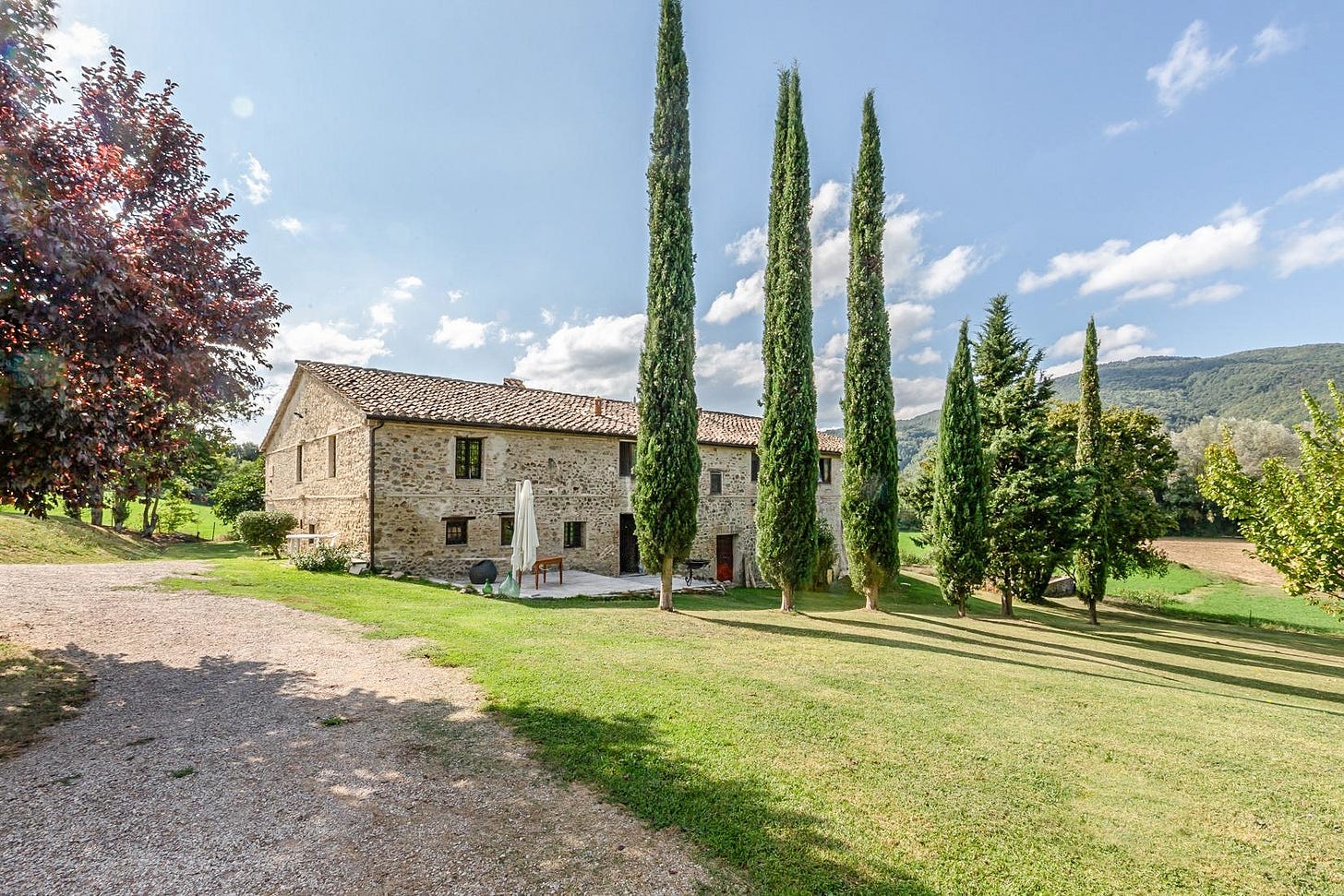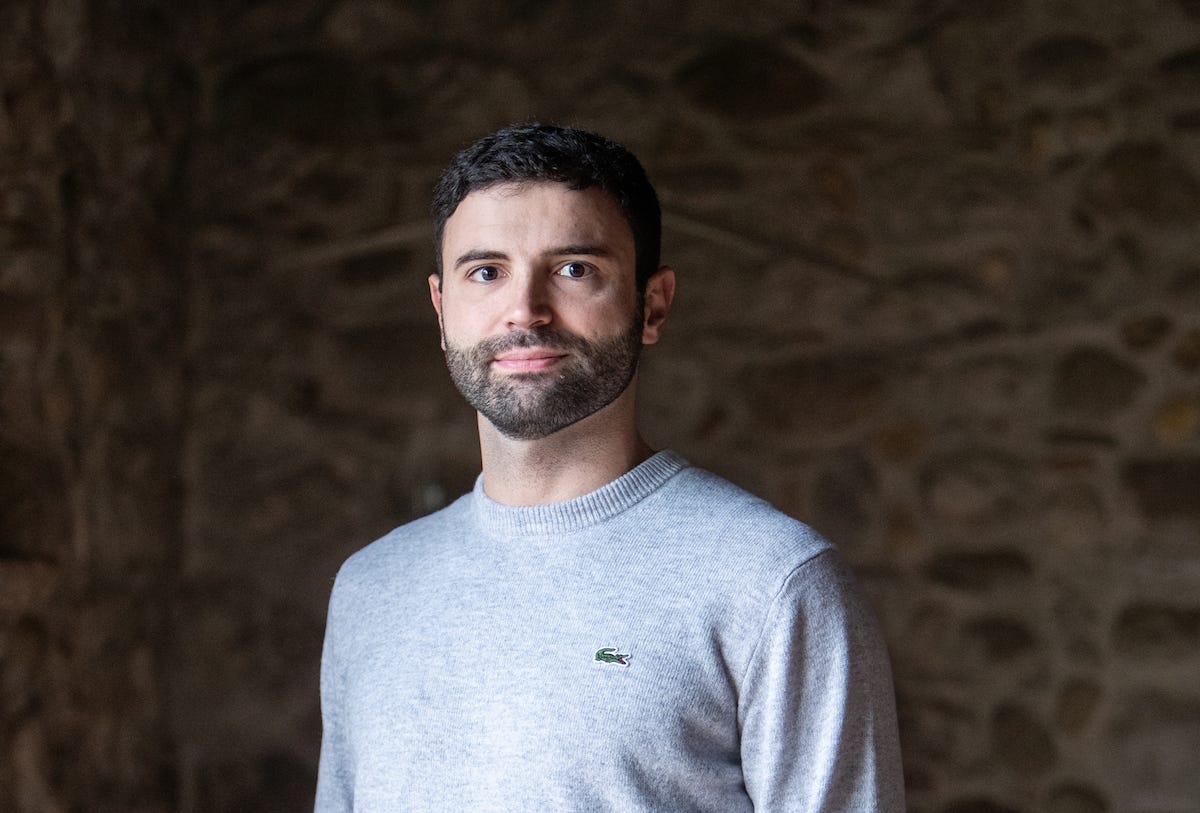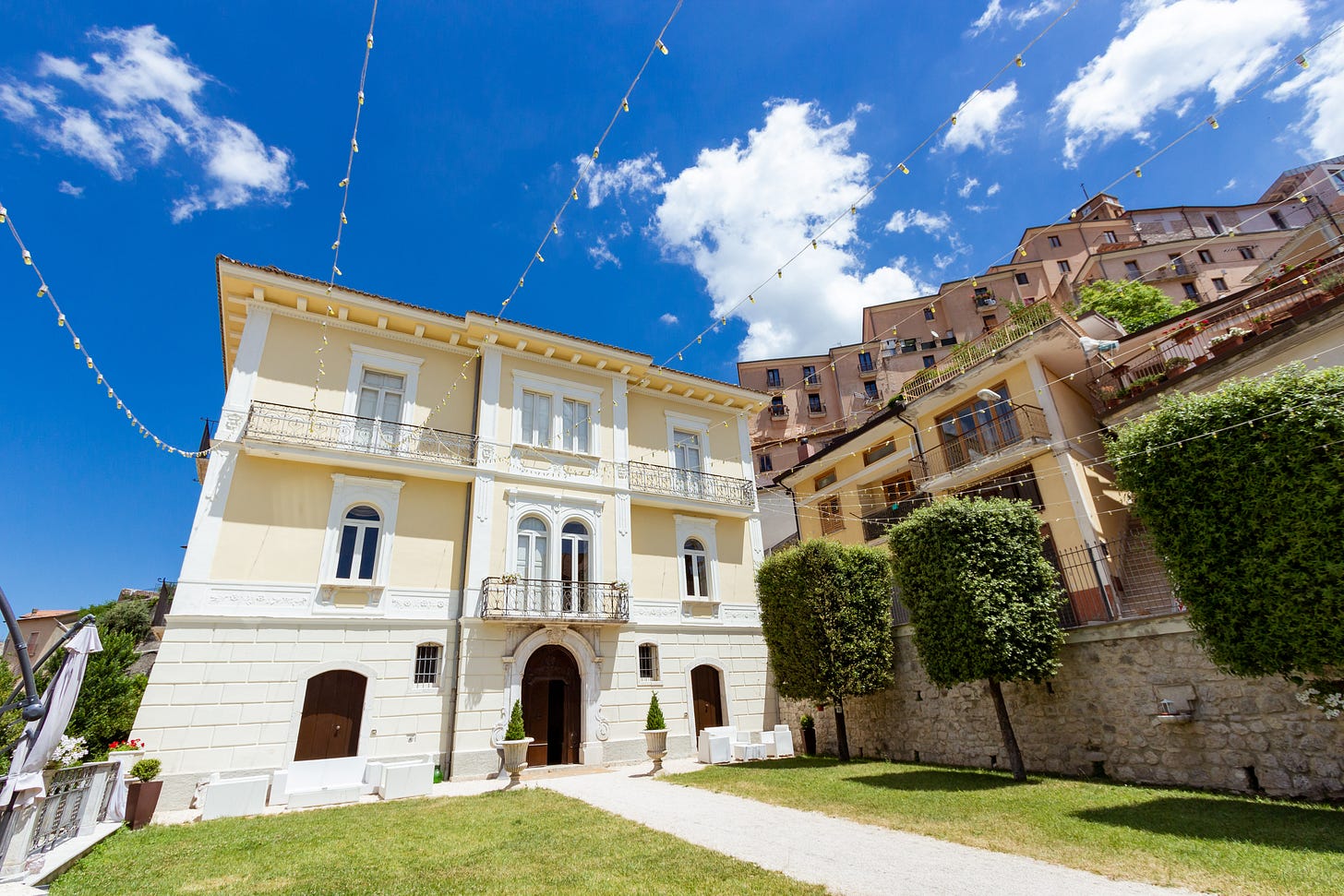Startups, Grants, and the Journey Home
From rural Italy to international markets via public funding: Nicolas and Ruralis tell the story of an Italy that refuses to give up.
After spending years abroad, returning to Italy to build a business in small towns is more than a professional choice — it’s an act of faith. And, as often happens, every time I read about someone trying to do it, I feel a mix of empathy, envy, and constructive skepticism. That’s exactly what happened when I came across Ruralis, the Irpinian startup that recently secured €1.8 million in non-repayable funding from the Italian Ministry of Tourism.
This new grant adds to a previous €1 million, also non-repayable, on top of a past crowdfunding campaign in Italy — and a new one currently running in the U.S.
What struck me wasn't just the money. It was the structure, the clarity of strategy, and the fact that there’s a team behind it that chose not to flee these places, but to turn them into a center of gravity.
Ruralis provides digital solutions for managing short-term rentals in Italy’s internal rural areas. And now, with this latest round of funding, they’re planning something new: a broader vision that includes a nature-immersed hub with coworking spaces, host training programs, and a tech platform powered by artificial intelligence — all based in a village of just 3,000 residents.
So who’s behind it? Nicolas Verderosa, an Italian with a solid international track record: three years as a project manager in England, followed by time in New York as an accountant. After working in global contexts, he chose to return to Irpinia and build a startup from scratch. First came the bootstrapping years — offering educational travel packages and local experiences like wine tastings and trekking. Every euro earned was reinvested. That’s how Ruralis was born.
“With no initial capital and a big entrepreneurial dream, I started by organizing study trips for foreign students, then added wine tasting and hiking experiences in Irpinia. Every euro was reinvested. Ruralis didn’t come from a sudden idea, but from a path made of trial, listening, and deep local roots.” (from his LinkedIn profile)
As someone who works with returning Italians and territorial investments, I know what it means to speak about innovation with slow or unresponsive local administrations. I know what it feels like to build something without an ecosystem. That’s why seeing someone succeed — even with the help of public funds — doesn’t bother me. On the contrary, it intrigues me.
I asked Nicolas directly how the model holds up, whether this kind of funding is sustainable, and how they balance their local mission with international ambitions. His answers weren’t vague. They were clear, pragmatic, and showed a level of business maturity that you rarely see in a startup from a provincial town.
Not everything convinces me. Storytelling always needs to be handled with care. But the Ruralis project challenges us to go beyond clichés. It asks us: what if public funding isn’t just welfare, but a strategic tool for revitalizing territories? What if having a hybrid model — part private, part public — isn’t a flaw but a feature?
Would I invest in Ruralis today? Probably not. But would I collaborate with them? Absolutely. I’d love to explore whether we could build something together — maybe in places where houses are empty and young people are preparing to leave. Because while a coworking space and a few vacation rentals might not be enough to save a village, no village will be saved if we don’t at least try.
You can read here the interview published on Startup-news.it
☕️ COFFEE BREAK – Love what you're reading? Support our team with a coffee! Your contribution helps us keep creating great content that's free for everyone. Thanks for fuelling our work! ☕️
Startup, bandi e ritorno alle origini
Dalla provincia italiana ai mercati internazionali passando per i finanziamenti pubblici: la traiettoria di Nicolas e della sua Ruralis è il racconto di un’Italia che non si arrende.
Dopo anni vissuti all’estero, tornare in Italia per fare impresa nei piccoli centri è più che una scelta professionale: un atto di fede. E come spesso accade, ogni volta che leggo di qualcuno che ci prova, mi scatta un misto di empatia, invidia e spirito critico. È successo anche con Ruralis, la startup irpina che ha appena ricevuto 1,8 milioni a fondo perduto dal Ministero del Turismo.
La cifra, importante, si somma a un altro milione già ottenuto, sempre a fondo perduta, ad una campagna di crowdfunding fatta in passato in Italia e ora un’altra in corso negli Stati Uniti. Ma quello che mi ha colpito non sono solo i numeri: è la struttura, la strategia, il fatto che ci sia dietro un team che ha scelto di non scappare da questi luoghi, ma di farne un centro di gravità.
Ruralis gestisce digitalmente affitti brevi in aree interne. E ora che ha ricevuto questo importante finanziamento lancerà un qualcosa di nuovo con una visione più ampia: creare un hub immerso nella natura, con coworking, formazione per host locali, e una piattaforma tecnologica potenziata dall’intelligenza artificiale. Tutto in un borgo di 3.000 abitanti.
Chi è il fondatore? Nicolas Verderosa, un italiano che ha fatto esperienze internazionali di tutto rispetto: project manager in Inghilterra per tre anni e accountant a New York. Dopo anni in contesti internazionali, Nicolas sceglie di tornare in Irpinia e avviare una startup da zero. Prima con esperienze di bootstrapping legate ai viaggi studio e alle escursioni per stranieri. Poi, reinvestendo ogni euro guadagnato, getta le basi per Ruralis.
"Con zero capitale iniziale e un sogno imprenditoriale grande, ho iniziato creando pacchetti di studio per studenti stranieri, poi esperienze di wine tasting e trekking in Irpinia. Ogni euro veniva reinvestito. Ruralis è nata così: non da un’idea improvvisa, ma da un percorso fatto di tentativi, ascolto e radicamento locale.” (Cit. dal suo profilo LinkedIn)
Da italiano che si occupa di chi parte, chi rientra e di investimenti nel territorio, so bene cosa significa parlare di innovazione con amministrazioni locali sorde o lente. So cosa vuol dire lavorare senza ecosistema. Per questo, vedere che qualcuno ci riesce — anche grazie a fondi pubblici — non mi scandalizza. Anzi, mi interessa.
Ho voluto chiedere direttamente a Nicolas come reggono il modello, se i fondi sono sostenibili, come gestiscono l’equilibrio tra locale e internazionale. Le risposte non sono state vaghe. Sono state lucide, pragmatiche. Hanno mostrato un’impostazione aziendale molto più matura di quanto ci si aspetterebbe da una startup nata in provincia.
Non tutto mi convince: lo storytelling va sempre trattato con cura. Ma il progetto Ruralis ci obbliga a guardare oltre i soliti binari. Ci chiede: e se i fondi pubblici non fossero solo assistenzialismo, ma strumenti strategici per fare impresa nei territori? E se non fosse un problema avere una strategia ibrida tra privato e pubblico?
Io non investirei oggi in Ruralis, ma vorrei collaborare con loro. Capire se possiamo far nascere progetti comuni, magari proprio dove oggi ci sono case abbandonate e ragazzi che stanno facendo le valigie. Perché se è vero che non basta un coworking e qualche casa in affitto a breve per salvare un paese, è altrettanto vero che nessun paese si salva senza provarci.
Trovi qui l’intervista pubblicata su Startup-News.It
☕️ PAUSA CAFFÈ – Ti piace quello che stai leggendo? Offrici un caffè! Il tuo supporto ci aiuta a creare contenuti di qualità, sempre gratuiti per tutti. Grazie per darci la carica! ☕️






